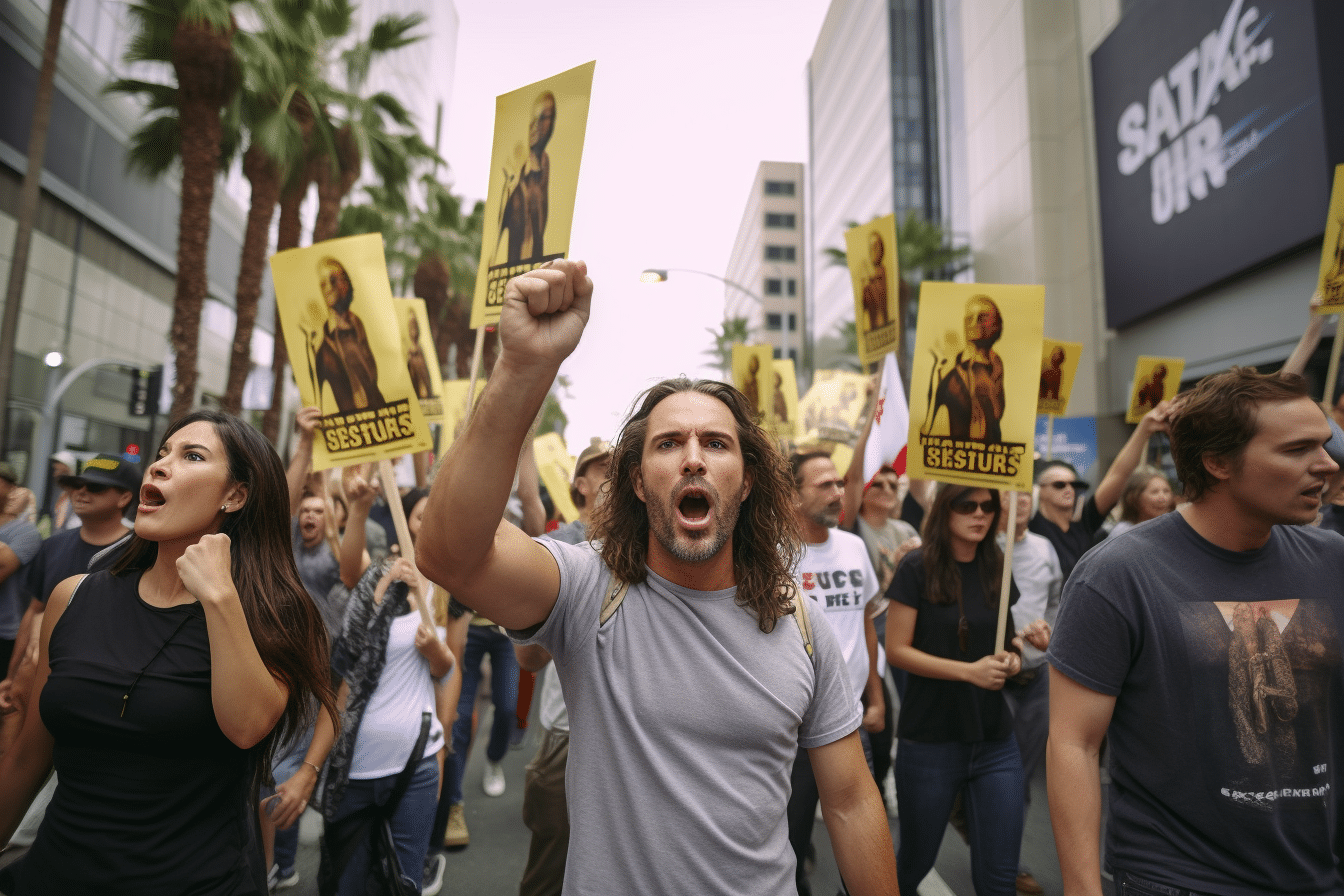
After 118 days of standstill, the Screen Actors Guild‐American Federation of Television and Radio Artists (SAG-AFTRA) has reached a watershed moment. A unanimous vote from the union’s negotiating committee has ratified a tentative agreement that promises to end the longest actors strike in Hollywood’s history. The contract, set to go before the SAG-AFTRA national board, brings first-time protections against the use of artificial intelligence and a significant pay increase for actors.
The agreement, a product of intense negotiations, includes groundbreaking provisions. For the first time, actors will receive protections against artificial intelligence, coupled with a significant pay increase. Most minimums will rise 7%, surpassing the increments received by the Writers Guild of America and the Directors Guild of America.
The deal includes a “streaming participation bonus” and promises enhanced pension and health contributions. Its overall value exceeds $1 billion, symbolizing a significant win for SAG-AFTRA members across various categories.
Committee members Kevin E. West and Ben Whitehair expressed their emotions, highlighting the deal’s significance as a “massive win” and an “extraordinary” achievement. The agreement also targets structural change in compensation on streaming platforms, an area of growing importance in the entertainment industry.
Sean Astin, another committee member, shared the profound emotional impact of the strike and the subsequent relief following the agreement. The complex issue of AI was one of the last hurdles in the negotiations, eventually resolved in discussions between Duncan Crabtree-Ireland, SAG-AFTRA’s top negotiator, and Carol Lombardini, CEO of the Alliance of Motion Picture and Television Producers.
Disney CEO Bob Iger expressed concern about the strike’s financial impact, emphasizing the urgency of a resolution. The AMPTP’s “last, best and final” offer on Friday included an increased bonus for actors in top streaming shows, though it fell short of the union’s revenue-sharing demands.
The union and the AMPTP have engaged in intense discussions over the past few weeks. While the AMPTP staff typically handles negotiations, high-profile CEOs from major studios were directly involved.
The strike halted most TV and film production, causing increasing restlessness among A-list actors and prompting studios to warn about potential impacts on future TV and theatrical seasons.
This agreement ends Hollywood’s longest actors’ strike and sets a precedent for future negotiations in the evolving landscape of film and television. As union members prepare to vote on ratifying the agreement, there is a palpable sense of achievement and relief, heralding a new chapter for actors and studios alike. The industry now looks forward to resuming its creative endeavours with an enhanced appreciation for the contributions and rights of its actors.
